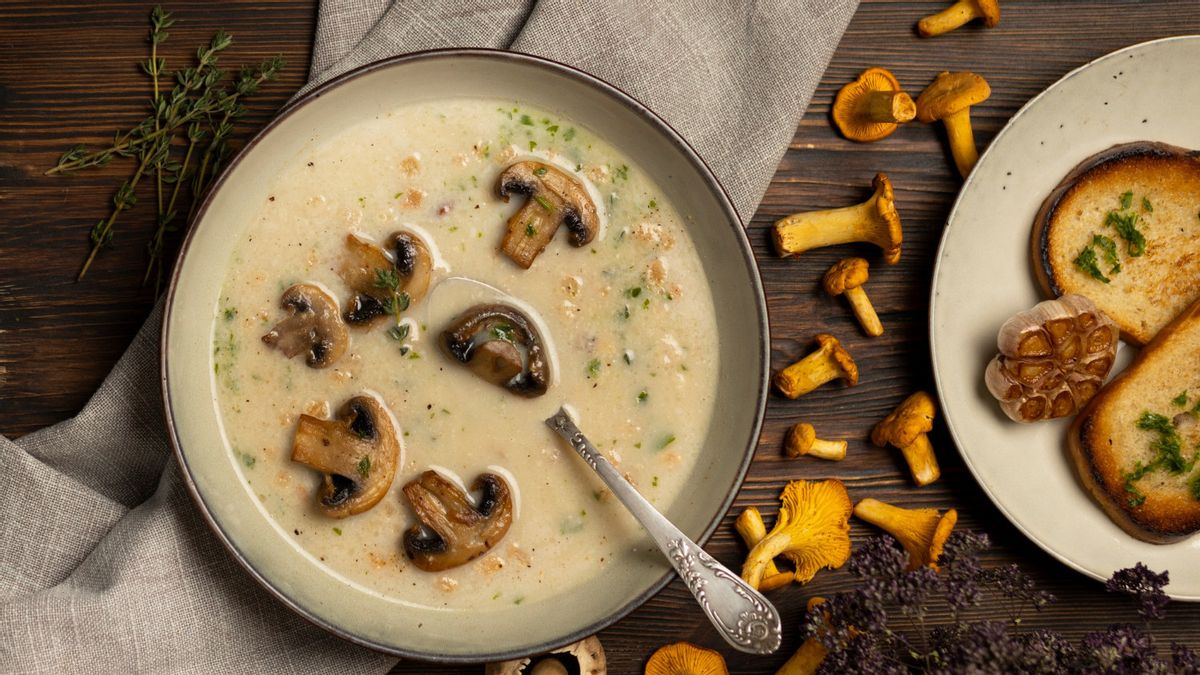YOGYAKARTA - Managing food is one way so that food is consumed again and not redundant. Although warm food makes appetite increase, in fact there are some foods that should not be reheated.
In Indonesian society, reheating food has been cooked into a habit that is commonplace. Many people do it because it saves time, energy, and costs, rather than having to cook new foods.
Even though the habit of heating food is not good for some types of food because it is actually a bad risk for health. This process can eliminate nutrients in food and result in the emergence of toxic substances. So what foods should not be reheated?
Reheating the food is actually okay, but it should not be done in certain foods. In addition to reducing the taste and texture of the food, this process can lead to toxic substances that are harmful to health.
Here are some foods that should not be reheated because they can have a negative impact on health:
Rice is included in the type of food that should not be warmed or reheated. When the rice is reheated, the Bacllus cereus bacteria can appear and are often the cause of food poisoning. These bacteria can survive high temperatures, including during the cooking process.
Therefore, you should eat rice immediately after cooking. For example, there is still rice left, it is better to store it at room temperature for one hour.
Eggs are foods with high protein content. Because you store a lot of protein, the eggs should not be reheated. Eggs also contain relatively high amounts of nitrogen.
When heated, nitrogen can have oxidation. Nitrogen oxidation can trigger the risk of cancer. Reheated eggs can produce toxic substances that have the potential to interfere with digestion, either in fried or boiled eggs.
Various types of processed meat such as smoked meat, sausages, and ham contain sodium nitrits and a high level of protein. If these foods are overheated, the content of sodium nitrits and protein can turn intoxisamin.
Nitrosamin is a harmful compound that has carcinogenic properties and can increase the risk of cancer. The safest way is to cook processed meat products at a temperature of 70$C, for only two minutes.
Other foods that are not recommended to be reheated are potatoes. The potatoes contain carbohydrates that are often used as a substitute for rice. In addition, the potatoes are also stored in fiber, protein, antioxidants, potassium, folates, and various other types of vitamins.
However, it should be noted that heating potatoes can damage the nutrients contained in it. In addition, if potatoes are left at room temperature for a long time then it can make them toxic. Coils that have been cooked should not be reheated because it can trigger the growth of bacterials, which can produce toxins and interfere with the respiratory system.
The mushrooms are also foods that should not be reheated. The mushrooms that have been cooked and stored in the refrigerator for no more than 24 hours can still be reheated. However, if the mushrooms have been stored beyond that time, then don't reheat them.
If you want to heat up the mushrooms, it is recommended to do so at a temperature of about 70 degrees Celsius. Avoid overheating so that the texture of the mushrooms does not become hard and too chewy. Reheating of the mushrooms should only be done once to keep consumption safe.
SEE ALSO:
Some vegetables contain high levels of nitrate. The presence of this content has the potential to be dangerous if vegetables are heated repeatedly. Nitric compounds can become carcinogenic after reheating.
Some vegetables that contain high nitrates, namely celery, Mosquito lettuce, carrots, spinach, and bit roots. So you should cook vegetables in sufficient portions so you don't need to keep the rest.
Sea food or seafood also needs to be considered how to warm it up. The Seafood in question includes fish, crabs, squid, shrimp, and so on. Fresh seafood that has just been captured should be frozen immediately before reheating. Storing seafood at room temperature can invite the development of bacteria that can cause digestive disorders. Reheating of the seafood is not always effective in eliminating these bacteria.
Those are some foods that should not be reheated. So if you cook or buy food and it's still left, don't just heat it up. Avoid reheating some of the above for your health.
Stay up to date with the latest domestic and other overseas news on VOI. You present the latest and most updated nationally and internationally.
The English, Chinese, Japanese, Arabic, and French versions are automatically generated by the AI. So there may still be inaccuracies in translating, please always see Indonesian as our main language. (system supported by DigitalSiber.id)

















